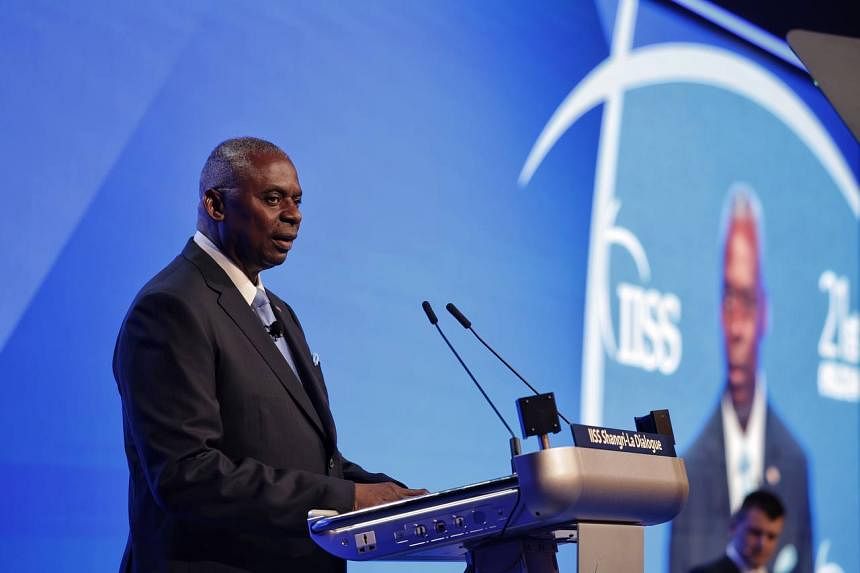SINGAPORE – The United States wants to step up the enmeshing of its strategic alliances and partnerships in Asia into a “new convergence” based on the rule of law – a commitment that its Secretary of Defence Lloyd Austin said will continue regardless of the outcome of the US election in November.
Mr Austin evoked “a future of fresh and growing partnerships” in a speech at the Shangri-La Dialogue on June 1, which immediately elicited a question from a Chinese delegate on whether the US was planning to build “a Nato-like system in the Asia-Pacific region”.
In response, the US Secretary of Defence described it as a strengthening of relationships with allies and partners based on a common vision and common values.
While China and the US are competing for influence in the Asia-Pacific region, he sought to allay concerns from allies that Washington has become too distracted by other flashpoints in the world, including Russia’s invasion of Ukraine and the crisis in Gaza.
“Despite these historic clashes in Europe and the Middle East, the Indo-Pacific has remained our priority theatre of operations,” he said.
“The actions that we take together here will continue shaping the 21st century for the entire world. And safeguarding the security and prosperity of this region remains the core organising principle of US national-security policy.”
He declared: “The United States can be secure only if Asia is, and that’s why the United States has long maintained its presence in this region.”
Mr Austin told the security conference that “today we are witnessing a new convergence around nearly all aspects of security in the Indo-Pacific”.
“This new convergence is producing a stronger, more resilient, and more capable network of partnerships,” he added. “It isn’t about imposing one country’s will; it’s about summoning our sense of common purpose.”
Mr Austin pointed to the US partnerships with Japan and India in defence technology, the Aukus defence technology transfer partnership with Australia and the United Kingdom, and the help rendered to South-east Asian nations in technology and training to uphold freedom of navigation in their waters.
“It isn’t about bullying or coercion; it’s about the free choices of sovereign states. And it’s about nations of goodwill uniting around the interests that we share and the values that we cherish,” he said, without making overt references to China in his prepared comments.
He said that common principles include a respect for sovereignty and international law, free flow of commerce and ideas, freedom of the seas and skies, as well as the peaceful resolution of disputes through dialogue, “not coercion or conflict, and certainly not through so-called punishment”.

